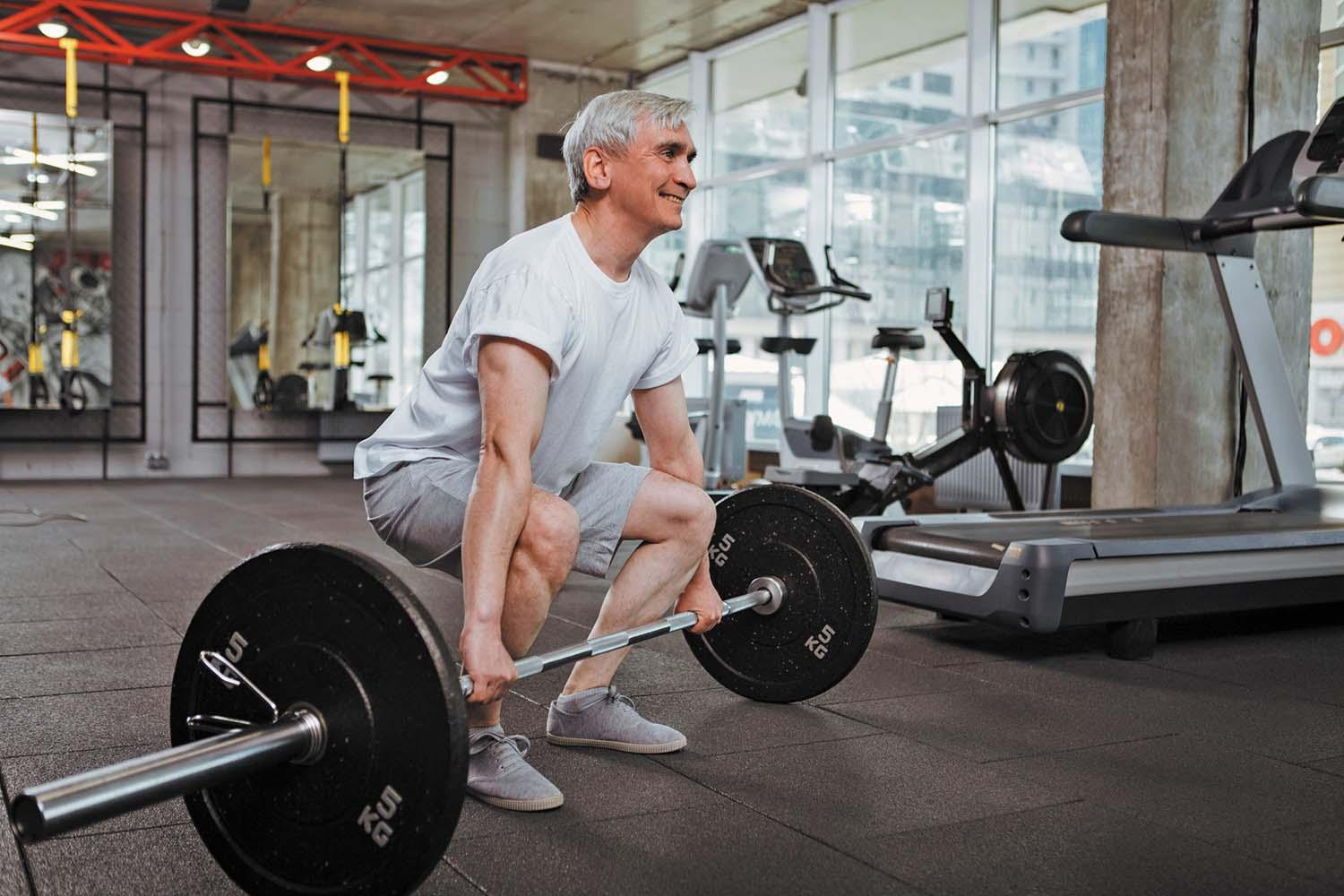10 Simple Habits That Could Help You Live to 100
Embracing healthy habits, such as eating a plant-forward diet, exercising regularly, and having more sex, can help you live a longer, healthier life.
1. Get 15 Minutes of Daily Sun Exposure
Just 15 minutes of daily sun exposure is enough to maintain vitamin D levels in healthy people.1 Exposure to sunlight triggers cells in your skin to produce vitamin D, a vitamin essential for many vital functions, including:2
- Bone growth
- Bone remodeling (in which bones constantly rebuild themselves)
- Involuntary muscle contractions (such as for heartbeat and digestion)
- The conversion of blood glucose (sugar) into energy
Vitamin D deficiency can impair all of these functions and lead to poor bone health.2
A 2019 review of studies concluded that vitamin D deficiency is linked to a higher risk of all-cause mortality (death from all causes) compared to those with normal vitamin D levels. This includes a twofold increased risk of death by cancer.3
2. Spend Time With Friends
Hanging out with friends and family can increase life expectancy. Studies have shown that the more connected you are to loved ones, the better your overall health.4
Scientists are not exactly sure why relationships play a role in health and longevity. It could be that people in positive relationships are less likely to take risks and are more likely to take care of themselves. It could also be that having people around you reduces stress in your life.5
Those who engage in "meaningful" relationships tend to have better life expectancies. This means conversing about each other's beliefs, interests, or history, or engaging in activities both parties enjoy.5
A study in the journal PLoS Medicine concluded that, based on 148 studies involving 308,849 participants, people who reported strong social relationships had a 50% lower risk of premature death than those who didn't.6
3. Exercise Consistently
Daily exercise is strongly linked to improvements in life expectancy. A comprehensive review of studies in the Journal of Aging Research showed that people who exercise regularly—even for as little as three hours a week—lived up to 6.9 years longer than those who didn't.7
For life expectancy, it is more important to exercise consistently year after year than to have periods of intense exercise followed by periods of no exercise.7
Exercise recommendations for adults are:8
- At least 150 minutes per week of moderate-intensity aerobic activity or 75 minutes per week of vigorous aerobic activity, or a combination, spread throughout the week
- Muscle strengthening activities at least two days a week (resistance or weights)
- Spend less time being sedentary
Daily exercise doesn't have to mean going to the gym every day. Home exercises such as yoga, stretching, free weights, swimming, or brisk walking can be incredibly beneficial, particularly for older people.
4. Floss Daily
Gum disease, known as periodontitis, affects 11% of the world's population and is the sixth most common disease worldwide.9 Severe periodontitis is directly linked to an increased risk of heart disease and an increased risk of death from heart attacks.9
Flossing prevents gum disease and, by doing so, prevents bacteria in your mouth from passing through compromised tissues and entering the bloodstream. These bloodborne bacteria can migrate to the heart, infecting and damaging the heart muscle and valves. Therefore, flossing daily may extend life expectancy.
5. Have More Sex
Sex can improve your overall well-being, giving you the incentive to take better care of your health, though other factors may contribute.
One early study reported, for example, that males with a high frequency of orgasms had a 50% reduction in all-cause mortality.10
A 2022 study in the Journal of Applied Gerontology reported that the belief that sex is an essential part of health was more influential on longevity than the frequency or enjoyment of sex. According to the study, people who held sex-positive beliefs were 78% more likely to live to the expected life expectancy than those who didn't.11
6. Emphasize Plant-Based Foods
Eating more plants, such as fruits and vegetables, does not mean you should stop eating meat, or that it is even appropriate or safe for you to do so. But research has shown the principles of vegetarianism may increase health and life expectancy in various ways, such as:12
- Lowering the risk of obesity
- Higher consumption of nutrient-dense foods such as whole grains, legumes, vegetables, and fruit
- Reducing overconsumption of sugar, salt, and saturated fats
Eating a more well-rounded diet pattern can reduce your risk of aging-related diseases like high blood pressure, diabetes, heart disease, and colon cancer.
7. Lower Your Stress
Stress triggers the release of cortisol, a hormone that helps you respond to threats by raising your heart and respiration rate. Long-term elevations can be harmful, leading to anxiety, depression, high blood pressure, and heart disease.
There is also evidence that prolonged stress can "age" cells on a molecular scale.
Studies have shown that increased cortisol levels promote cell breakdown and the increased production of free radicals, unstable molecules that damage cellular DNA, causing cells to age and malfunction prematurely. This, in turn, gives rise to many different types of cancer.13
To better manage stress over the long term, try mind-body therapies like:
- Mindfulness meditation
- Gentle yoga
- Tai chi
- Deep breathing exercises
- Progressive muscle relaxation
- Biofeedback
- Guided imagery
8. Turn Off Your TV
By cutting back on television watching, you may improve your health and increase your life expectancy as well.
Here are a few reasons why:14
- Watching TV excessively makes you inactive and more likely to gain weight.
- Sitting for prolonged hours can lead to chronic back and neck pain.
- TV can be stressful, particularly if you are a news junkie.
- TV prevents quality social interaction and can contribute to anxiety and depression.
All of these things can have a negative impact on your health as well as your longevity.
One study found that people who spend a lifetime average of six hours per day watching TV can expect to live 4.8 years less than people who watch no TV. On average, every single hour of TV viewed after age 25 reduces the viewer's life expectancy by 21.8 minutes.14
9. Avoid Risks
For young people, the biggest causes of death are accidents, injuries, and violence. Certain risk behaviors associated with aging also correspond to a significant loss of life years.
According to a 2021 study in the journal Aging, these include:15
- Prolonged sitting: Loss of 2-4 years
- High blood pressure: Loss of 4-5 years
- Being chronically underweight: Loss of 4-8 years
- Smoking: Loss of 5-7 years
- Alcohol abuse: Loss of 5-7 years
- Physical inactivity: Loss of 5-7 years
- Type 2 diabetes: Loss of 7-10 years
By having several co-occurring risk factors, you compound the risk. For example, inactive people with diabetes and obesity have anywhere from an 8- to 13-year loss of life.15
10. Get Regular Health Screenings and Tests
Keeping your health in check is key to ensuring your optimal life expectancy. This includes:
- See your healthcare provider at least once yearly for a comprehensive physical exam and evaluation.
- Manage chronic medical conditions, following up with your primary care provider or specialists as needed.
- Get your recommended vaccines, including annual ones like the flu and COVID shots, and scheduled ones like the shingles and meningococcal vaccines.
- Get routine screenings based on age and sex, such as mammograms, colonoscopies, Pap smears, and STI screenings.
By preventing diseases or treating them during the early stages, you will be better assured of uninterrupted good health over the long term.
Key Takeaways
- Healthy habits like exercise, sun exposure, and plant-based eating reduce disease risk and boost longevity.
- Strong relationships, stress reduction, and a positive mindset support emotional health and longevity.
- Avoiding risky behaviors and staying on top of health screenings helps prevent serious illness and early death.








